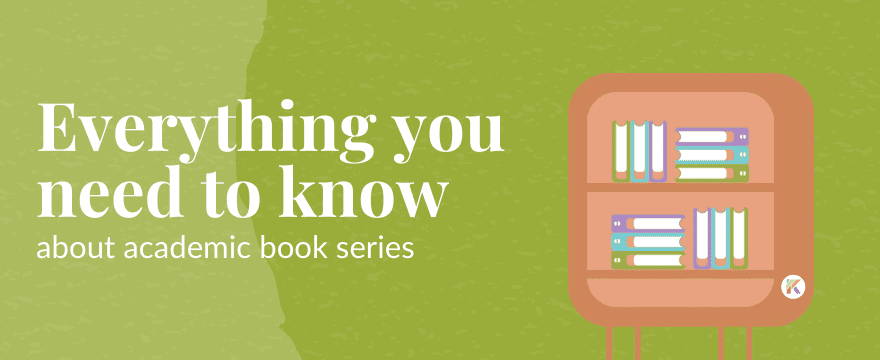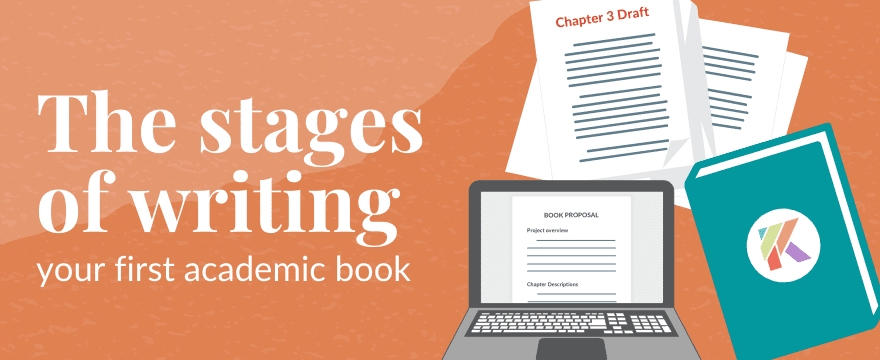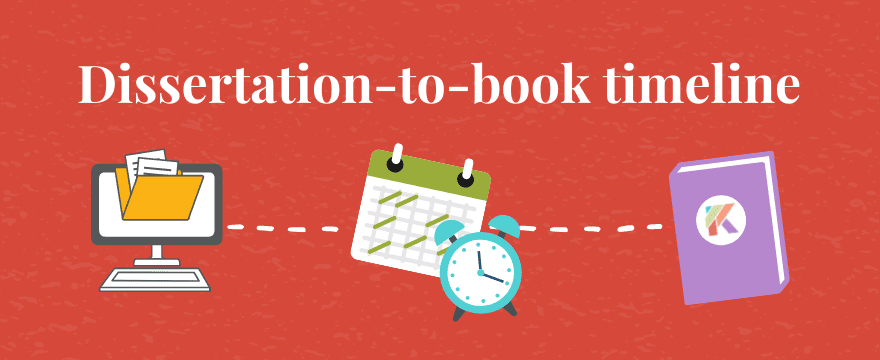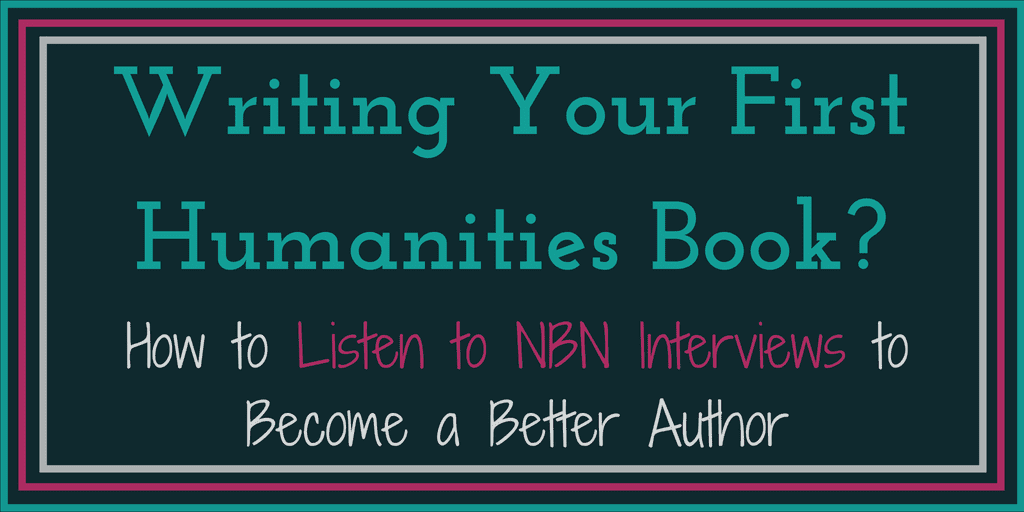Whether you have no clue what series exist in your field(s) or have more targeted questions about evaluating potential series for your book, this post’s got you covered. Specifically, I’ll cover:
- What a book series is
- How you can discover what series exist in your field(s)
- Questions you can ask to evaluate a series’s prestige and your books’ fit
- Advantages to being published in a series
- Disadvantages to being published in a series
- Whether it’s easier to be published in a series
- Whether to contact the series or acquisitions editor first about your project
- What you need to know about series prestige
- And thoughts on three real-life situations relating to series
Let’s dive in.
What is a book series at an academic press?
A book series is a topic the press has chosen to support. A series is coordinated by series editors: senior scholars who want to actively cultivate conversations around this topic through scholarly monographs.
You will find book series at both university presses and academic trade presses (like Routledge, Lexington, etc.).
Sometimes, series have particular requirements–or perks–not found at the larger press. Some series, for instance, require that a monograph’s source materials be digitized and accessible to the book’s audience. Other series automatically publish their monographs in open access.
How do I know what book series there are in my field(s)?
First, start with a quick Internet search for “[your field(s)] + book series.”
If you already have target presses in mind, you can also visit their press page, which will usually have a menu item to browse the series they publish, like menu item at the University of Nebraska Press.

Finally, check whether your model books (or competing and comparable works) appear in a series. You can, of course, find this information in the front matter (on the page with publication information). But you can also find this information on the book’s page on the publisher’s website.
How can I evaluate a series (and my book’s potential fit)?
Whether you already know of several potential series in which you think your book could be a good fit or you’re just starting preliminary research about series in your field, use the following questions to evaluate your project’s fit and the series’s reputability.
- What is its topic? For instance, if you’re working on a film project that does visual analysis, but a media and technology series editor approached you, ask: are you really interested in writing a media and technology focused book? What work would you need to do to reframe the book’s main claims and analyses?
- Who are its editors? Do you know of them? How are they regarded in your field?
- Ask colleagues their overall impressions of the series and press. Does it produce high-quality books?
- What, if any, additional parameters define books published in this series? For instance, do they require that sources be digitized?
- Look at the recent authors it has published. Does it publish both established and junior scholars? Do the junior scholars earn tenure? At what institutions?
- Is the series associated with a particular organization like a think tank? (Note: this is not particularly common, but they do exist.) If so, how is that organization regarded in your discipline? Might you need to alter your book’s claims to fit with that organization’s beliefs and values?
What are the advantages to being published in a series?
First, series editors are often quite invested in helping authors develop a promising project. So, if you would relish having an experienced sounding board weigh in on key dimensions of your book, publishing in a series might be a good option.
Second, since series cultivate narrower discussions, they can have an existing built-in readership.
Finally, because series are more narrow than a press’s list in a particular area and because they are coordinated by series editors, books in series can be marketed in more targeted ways than non-series books.
(Interested in other perspectives on book series? Check out Chapter 1 of Laura Portwood-Stacer’s The Book Proposal Book, her comprehensive blog post on series, and her newsletter on series.)
What are potential disadvantages to being published in a series?
You might need to make significant changes to the manuscript for it to fit in the series. As outlined above, if you’re working on a film project that does visual analysis, but a media and technology series editor approaches you, you will need to seriously consider whether you’re really interested in centering media and technology in your book. Additionally, you will need to assess whether doing so is truly in the best interest of the project you actually want to write. Finally, you will need to evaluate whether you have the time to make those changes.
Some series also have non-traditional requirements that might take time or resources you don’t have to meet.
Is it easier to be published by a series than not?
Not really.
Having a book that fits a series can make your book more attractive to that series’s press. But being a good fit for a series does not mean your book will automatically be published. Your book will still need to go through rigorous peer review.
If I want to be published in a series, should I approach the series editor or acquisitions editor first?
Early on, you can feel free to approach the series editor first. (As I outline in my post describing the differences between an acquisitions editor and a series editor, you’re much more likely to have encountered the series editor–who’s a scholar like you–at conferences.)
If you’re actively submitting proposals, however, it’s probably best to contact the acquisitions editor. Do mention that you think the project would be a good fit for the series (give the series’s name). If the acquisitions editor agrees that your project is a good fit, they will forward your proposal on to the series editor for review.
What do I need to know about series and perceived press prestige?
Typically, the prestige of the press matters more than the prestige of the series. Because prestige is highly disciplinary- and field-dependent, do check with trusted mentors and colleagues about their understanding of the press’s and series’s prestige.
What if a series editor approached me, thinks my book is a good fit, and wants to see some chapters?
Sometimes, things can happen much more quickly than expected for non-experienced authors (especially for series at academic trade presses), and you can find yourself implicitly (or even explicitly) committed to a press before you’ve gotten a chance to explore all your options.
Let’s play this scenario out. The series editor approaches you, says your book would be a good fit for their series, and offers to give you feedback on a few of your book’s chapters and give you feedback. Flattered, you send them two chapters, and they give you helpful comments, inviting you to submit your proposal. Though you’re definitely not formally committed to that press (or series), that series has already invested time and energy in your project. So, you now find yourself in a delicate situation if that press is not one of your top choices.
If you would be happy to publish with that series and press, and you’re sure it’s solid enough for tenure and promotion purposes, go for it!
If, by contrast, this press is not in your top tier of target publishers, tread carefully. Discuss the situation with a trusted mentor.
What if I will need to make significant changes to my book for it to fit the norms of the series?
As with all decisions regarding your book, you are now in charge. Ask yourself whether you truly have the time and resources to undertake these tasks. For instance, maybe meeting the series’s norms merely requires that you foreground a particular thread in your book’s introduction (but it will not fundamentally alter your chapters’ claims). If this is a thread that you want to foreground (and doing so is in your project’s best interest), then go for it.
If, by contrast, meeting the series’s norms will require you to significantly alter the book (or engage in a multi-year digitization project), do seriously consider whether you will actually have the time and resources to devote to that undertaking.
What if an acquisitions editor passed on my project, but now I think it’s a good fit for one of that press’s series? Should I write to the series editor?
There is no real positive outcome possible in doing so. This is because the acquisitions editor, not the series editor, is the press employee responsible for shepherding the project through publication. They will be responsible for making a convincing case to the editorial board about why the book should be awarded a contract. If the acquisitions editor has already passed on the project, encouragement from a series editor is unlikely to cause them to change their mind.



